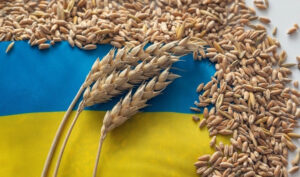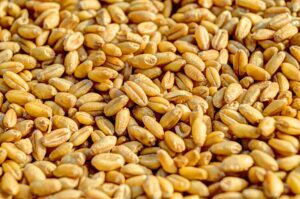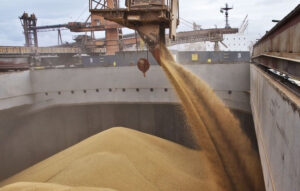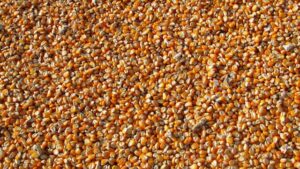
In August this year, the cargo turnover of Ukrainian ports amounted to 7 million tons, which is more than twice as much as in 2023, when it was recorded at 3.3 million tons, the Ukrainian Sea Ports Authority (USPA) reported on its Facebook page.
“The leaders of cargo turnover are grain and ore cargo – 4 million tons (against 2.3 million tons in 2023) and 1.2 million tons (against 195 thousand tons in 2023), respectively,” the agency said.
At the same time, the cargo turnover through the Ukrainian sea corridor in August amounted to 5.9 mln tons, of which 3.6 mln tons were the products of Ukrainian farmers.
In total, in January-August 2024, Ukrainian ports handled almost 67 million tons of cargo, compared to 37.7 million tons in the same period a year earlier. The USPA summarized that 7769 vessels were handled compared to 9732 last year.

Astarta Agro-Industrial Holding, the largest sugar producer in Ukraine, supplied 1.26 million tons of agricultural products to foreign markets in the 2023-2024 marketing year, the company’s press service reported on Facebook.
According to the report, the agricultural holding exported 512 thousand tons of corn, 375 thousand tons of wheat, 140 thousand tons of sugar, 125 thousand tons of meal, 43 thousand tons of soybean oil, 45 thousand tons of rapeseed and other agricultural products.
The main consumers of corn were Spain, Egypt, Italy, and Ireland. Spain, Indonesia, Romania, Portugal, and Italy were the main consumers of wheat. Sugar was supplied to the markets of Europe, the Middle East and Africa. Meal and soybean oil were exported to Hungary, Poland, the UAE, Romania, and Saudi Arabia. The main consumers of organic products are Switzerland, the Czech Republic, France, and Germany.
In total, Astarta’s agricultural products were exported to 46 countries, the agricultural holding summarized.
In 2023, Astarta, the largest sugar producer in Ukraine, reduced its net profit by 5.0% to EUR 61.9 million, and its EBITDA decreased by 6.1% to EUR 145.77 million, while revenue increased by 21.3% to EUR 618.93 million.
Astarta CEO Viktor Ivanchik’s family currently owns 40.68% of the company. Fairfax Financial Holdings is also a major shareholder with 29.91%, and another 2.12% of shares belong to the company itself and were previously bought back as part of a buyback.
According to the National Bank of Ukraine, as of October 1, 2023, Credit Agricole Bank ranked 11th in terms of total assets (UAH 100.36 billion) among 63 operating banks in the country, with 141 branches. The bank is fully owned by French Credit Agricole SA.

In the 2024-2025 marketing year (MY, September 2024-August 2025), Ukraine will be able to export more than 60% of its agricultural products despite the constant shelling of critical infrastructure and problems with electricity, said Acting Minister of Agrarian Policy and Food Taras Vysotskyi during a national telethon.
“We remain an export-oriented country in terms of agriculture. Most of the products we grow will be exported. Most likely, it will be more than 60%,” he said.
Vysotsky called safe and affordable logistics the main component of agricultural exports during a full-scale war.
“The military has done a lot here. But again, we see that the enemy does not stop, constantly shelling, in particular, the southern regions. We will actively work to ensure this logistics and the necessary systematic access of critical infrastructure to energy,” he emphasized.
The Acting Minister also reminded that many export operations, such as unloading, sorting, and distribution, require electricity.
“There are relevant government decisions that guarantee that the infrastructure critical to the agricultural sector can have access to uninterrupted electricity supply. Basic facilities have been included in the list. Everything is being done to ensure that these two challenges do not stop our production and exports,” summarized the head of the Ministry of Agrarian Policy.

The head of the Odessa regional military administration Oleg Kiper in August 2023 by his order strengthened customs control in the region when exporting agricultural products for export, at the same time on the market of export of agricultural products appeared about 40 companies with signs of fictitiousness, reported hromadske in the investigation “Grain Baron”.
The publication noted that through the ports of Odessa in 2023 passed 85 percent of the country’s agro-exports.
When analyzing the data of the Ukrainian customs, access to which is provided by the international service ImportGenius, journalists found 40 companies with signs of fictitiousness, which entered the agro export market after the Odessa OSA established “manual control” over it.
These companies started exporting grain after August 2023. They have never engaged in exports before, were founded or changed owners in 2023, are not part of well-known agroholdings and do not own land.
“The largest by export volume of these firms has the same phone number as another 139 legal entities. And in second place is a company whose founder is probably a psychologist from Uzbekistan, for whom 20 legal entities have been registered in Ukraine over the past two years,” the investigation said.
“Suspicious” companies for the last quarter of 2023 exported through the ports of the Odessa region about 800 thousand tons of agricultural products worth about $ 150 million, or 6 billion UAH, says the publication and recalls that the head of the Odessa Regional State Administration explained the establishment of manual control by the need to fight against one-day companies and so-called “black exports”.
Such one-day companies export grain and do not return foreign currency proceeds to the country, do not pay taxes, have a fake director and do not have an office. After several transactions with a budget of several million dollars, the company disappears.
The chairman of the All-Ukrainian Agrarian Union “Agrarnaya Rada” Dmytro Kohan drew attention to the fact that any manual control has increased risks of corruption.
The Odessa regional military administration refused to comment on the facts revealed by journalists.

All checkpoints on the Ukrainian-Polish border were unblocked on Sunday night, Minister of Agrarian Policy and Food Mykola Solsky said.
“We express our gratitude to the Polish Ministry for their constructive work on unblocking the border, as well as to the industry associations of both countries. The ongoing negotiations were not easy, but the main thing is that we have a result,” the press service of the Ministry of Agrarian Policy quoted him as saying at the online talks on Monday.
According to the report, negotiations between the ministries and associations will continue. The parties agreed to exchange monthly figures on the transit of agricultural products to monitor the situation.
The next meeting of the agriculture ministers of Ukraine and Poland is scheduled for May 7. They will discuss the terms of cooperation between the agricultural sectors of the two countries in the summer.

Shipment of agricultural products from the Chornomorsk seaport (Odesa region), whose infrastructure was severely damaged by a Russian missile attack last week, is gradually resuming, Spike Brokers brokerage company reported in a telegram channel.
The brokers noted that in 2023, the share of the Chornomorsk port in the structure of export shipments by water transport was 36%, while the Danube ports accounted for 32%, the Odesa port – 17%, and the Pivdenny port – 15%.
“Over the past week, freight rates for the transportation of corn by ‘coaster’ to the east coast of Italy decreased by $3, to Spain and Israel – by $2. The freight for the transportation of grain by panamaxes from the deep-water ports of Odesa to China and Vietnam decreased by $4,” the experts noted.
As of April 22, the rates for transportation from the port of Chornomorsk to Italy (east coast) amounted to $29-30 (30-35 thousand tons), Spain (Mediterranean) – $30-32 (30-35 thousand tons), Vietnam – $52-54 (60-65 thousand tons), China – $54-56 (60-65 thousand tons).
At the same time, the market rates for transportation by freight from the port of Izmail to the port of Constanta (Romania) as of the specified date are EUR18-22 (4.5-5 thousand tons), to the ports of the Mediterranean coast of Spain – $35-37 (30-35 thousand tons). The rates of transportation from the port of Reni to the ports of Israel range from $33-35 (30-35 thsd tonnes), Spike Brokers stated.
According to a grain market source, who wished to remain anonymous, such a restriction could lead to temporary disruptions in the delivery of products to the terminals of Kernel, Risoil and Viterra groups. In addition, the shutdown of grain terminals could lead to a reduction in April exports of Ukrainian grain via the Black Sea grain corridor to 5 million tons, compared to the expected 8 million tons.
As reported, on April 10, the Russian occupiers damaged railroad sidings to a number of grain terminals located in the port of Chornomorsk during the morning shelling of Odesa region. This resulted in temporary disruptions in the delivery of products to the terminals of Kernel, Risoil and Viterra.
“On the day of the shelling, Ukrzaliznytsia introduced a convention on freight transportation that was to be in effect until April 13, and then extended twice – first until April 17, then until April 22, after which it was lifted.